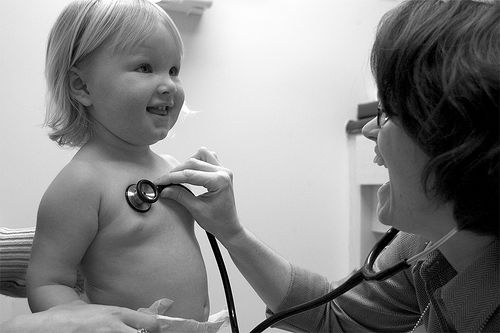
Treat At Home Or Call A Physician?
If your child complains of mild abdominal pain, you can self-medicate your child at home. Acetaminophen is the best choice to control fever. Do not give aspirin and antibiotics without consulting a physician. For abdominal pain, stop giving any solid foods. Just give them liquids like soup broth. Make sure your child does not get dehydrated by giving plenty of liquids. Avoid giving water or boiled milk in large quantities to infants. Call your doctor immediately if you find symptoms such as persistent pain / fever, low/no appetite, swollen abdomen, bleeding from rectum or blood in stool / vomit, or severe vomiting / diarrhea.
- Important notification about information and brand names used in this slideshow!
- Photo courtesy of David Mason by Flickr : www.flickr.com/photos/dmason/5901759/
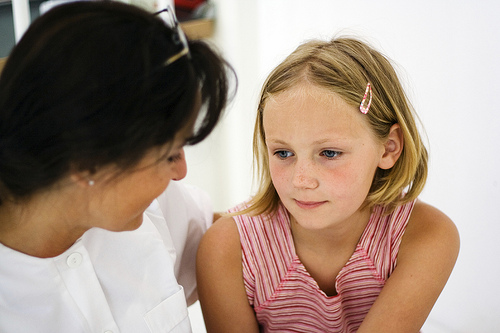
Infections - The Primary Cause
Infections are the primary cause of abdominal pain in children. They are usually caused by bacteria and viruses. This infection is known as gastroenteritis. It causes abdominal pain from gut flu or stomach flu. Besides these symptoms, these infections also cause other gastrointestinal symptoms such as abdominal cramps, diarrhea, nausea and vomiting. Viral infections usually cause vague symptoms and resolve quickly, while bacterial infections cause the mentioned symptoms and take a certain period of time and an antibiotic course to resolve completely. Preventing these infections will prevent many instances of tummy ache. The best way to prevent your child from such infections is to keep an eye on what your child eats and make sure that your child is living in hygienic conditions. Junk food and unhygienic conditions are the primary reservoirs of microbes.
- Important notification about information and brand names used in this slideshow!
- Photo courtesy of Rosie O'Beirne by Flickr : www.flickr.com/photos/rosieobeirne/4090200924/

Junk Food Is The Enemy Of Your Child’s Tummy
Be careful with what your child is eating. Abdominal pain can be caused by junk foods, eating excessive amount of foods, or eating food that does not meet hygiene standards. Eating such foods can cause food allergies and food poisoning which has symptoms similar to stomach flu and can result in temporary discomfort. Young school children are usually prone to such discomforts. In order to prevent abdominal discomfort, don’t allow your child to ingest any fast food or junk food. Childrens' gastrointestinal systems are not fully developed and don' digest fast food well. Prohibiting your child to eat such foods will result in less frequent gastrointestinal disturbances.
- Important notification about information and brand names used in this slideshow!
- Photo courtesy of Bruce Tuten by Flickr : www.flickr.com/photos/savannahgrandfather/312427606/
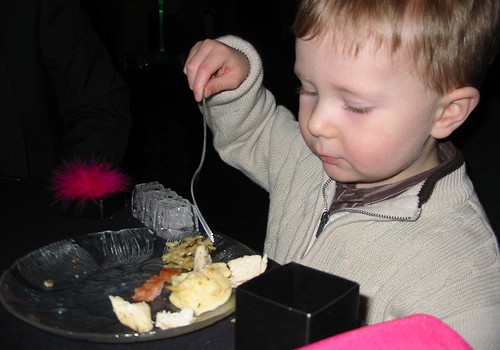
Poisoning Can Cause Worse Abdominal Aches
Gastrointestinal poisoning is a threat to your kid. An adult’s Gastrointestinal (GI) system may resist swallowing iron pills by mistake, or an overdose of medication such as acetaminophen, but a child’s digestive system is too sensitive to any kind of poisoning or overdose. Make sure that any kind of medication in the house is kept out of reach of children. A pill taken by a child can cause problems ranging from minor poisoning to a serious threat. This is why all medicine packs say, “Keep out of children’s reach”. Moms must be very cautious when giving any medication to their children. Even an overdose of energy supplements can result in poisoning which causes abdominal discomfort.
- Important notification about information and brand names used in this slideshow!
- Photo courtesy of Patrick W. by Flickr : www.flickr.com/photos/crazylegs/2309277800/
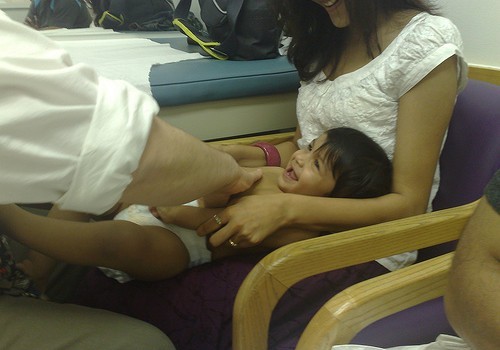
Severe Pain On The Right Side? It Is Appendicitis
Appendicitis is the primary cause of severe abdominal pain. Appendicitis isn't just a threat to adults; it can develop in children as well. It is a medical emergency that requires immediate attention. It is important for parents to learn the symptoms of appendicitis in children. The first symptoms are usually pain around the belly button and mild fever. The pain worsens with the time and later on radiates to lower right side of the belly. Loss of appetite, vomiting, and diarrhea or constipation are the symptoms associated with appendicitis. If you find these symptoms in your child and suspect that your child has appendicitis and call your doctor immediately. The earlier it is caught, the easier it is treated.
- Important notification about information and brand names used in this slideshow!
- Photo courtesy of yaminie10 by Flickr : www.flickr.com/photos/21940225@N03/2508911155/

Duration Of The Pain Helps In Correct Diagnosis
The duration of the pain is the key to find the exact cause of abdominal pain. A nanny, caregiver or parent must remember that most simple causes of abdominal pain do not last too long. Simple abdominal pains usually resolve within 24 hours. Simple abdominal pains include pains because of stomach flu, gut flu, gas, etc. But pain that lasts more than 24 hours is suspicious. A physician must be called if your child persistently complains of abdominal that started a day before and hasn't resolved yet. Such pain should be evaluated by a physician because it can be a serious issue to your child’s health.
- Important notification about information and brand names used in this slideshow!
- Photo courtesy of Hebe Aguilera by Flickr: www.flickr.com/photos/piinkapplee/9466329614/
- Hebe Aguilera
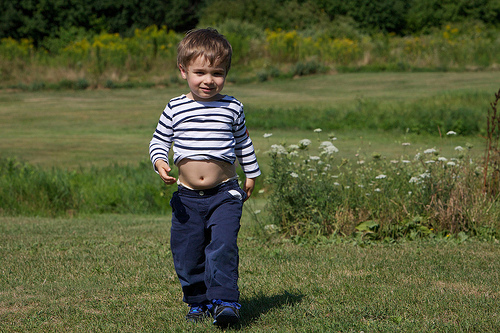
Location Of The Pain Is Very Important
The location of the pain is as important as its duration. Simple pains are mostly located in the center of abdomen. In such cases you might find your child rubbing around his or her belly button. The location of the pain can be evaluated at home by softly pressing the belly of your kid and notice his face expressions. If the pain is around the belly button, there is nothing much to worry about. A simple change in diet can resolve that pain. But the pain felt in other areas is suspicious. It is better to get your physician's opinion if the pain is radiating or has been ongoing.
- Important notification about information and brand names used in this slideshow!
- Photo courtesy of Juhan Sonin by Flickr : www.flickr.com/photos/juhansonin/4846829179/
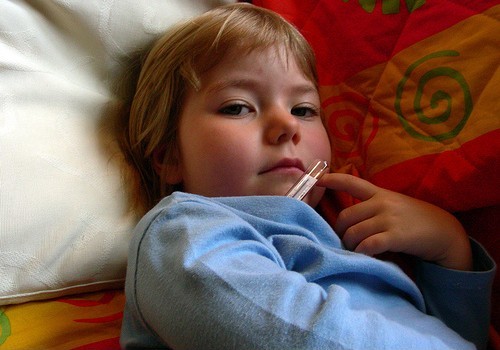
Fever With Abdominal Pain Is Not Good News
Fever goes with abdominal pain in many cases, but it's possible to have a normal temperature even in serious cases of abdominal pain. High temperatures or fevers indicate the presence of an infection in the body. Bacterial infections usually cause fever with diarrhea and abdominal pain. Solid foods must be prohibited in a state of fever. It is not recommended to self medicate your child if he or she has fever with abdominal pain, because a little overdose of medication can cause abdominal cramps or discomfort and sometimes it can even worsen the abdominal pain. It is better to consult your doctor before giving any medications to your kid in such a state.
- Important notification about information and brand names used in this slideshow!
- Photo courtesy of victor abellón by Flickr : www.flickr.com/photos/vabellon/243105152/

Vomiting Is Very Common
Children with abdominal pain vomit frequently. Vomiting is not a very serious issue for a child because it doesn't always indicate a serious problem. In most of the cases, vomiting stops within 24 hours. But, again, if the vomiting persists longer than 24 hours, you should be cautious and call your doctor as soon as possible. Nature of vomiting is also very important. Vomiting that appears darker or bloody is an emergency. This should be kept in mind that vomiting causes dehydration which can be dangerous for your child. Giving liquids to your child is highly recommended.
- Important notification about information and brand names used in this slideshow!
- Photo courtesy of anthony kelly by Flickr : www.flickr.com/photos/62337512@N00/3462897583/

Abdominal Pain With Diarrhea May Lead To Dehydration
Diarrhea is also commonly seen in patients with abdominal pain. Abdominal pain together with diarrhea is an indication of a viral infection. This usually does not resolve within 24 hours. This can continue for several days but mostly resolves within 3 days i.e. 72 hours. Like vomiting, diarrhea can also lead to dehydration, especially when associated with vomiting. If there are more than 6-8 episodes of diarrhea a day, you must seek immediate medical care. Or if you find blood in stools, you must consult your physician immediately. Keep giving fluids to your kid to prevent him from getting dehydrated — which is a much more serious issue.
- Important notification about information and brand names used in this slideshow!
- Photo courtesy of SuSanA Secretariat by Flickr : www.flickr.com/photos/gtzecosan/4216939039/



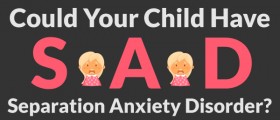

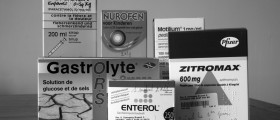

















Your thoughts on this
Loading...